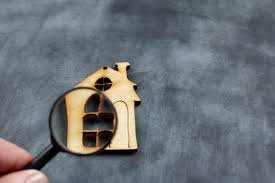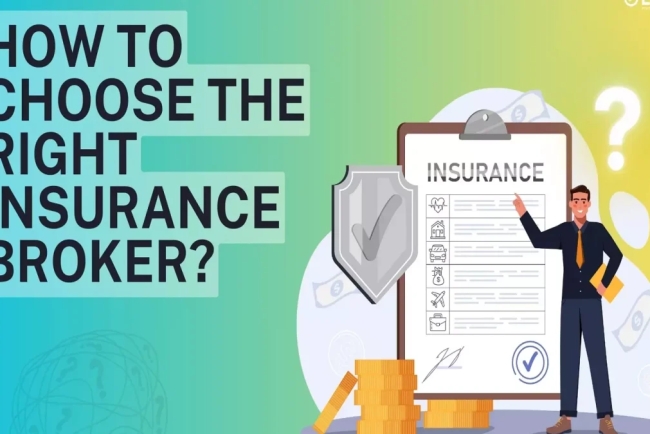When it comes to home inspections, the process is crucial for ensuring the safety and value of a property. Home inspectors play a key role in identifying potential issues that might affect a home's integrity and its future occupants. However, like any profession that involves assessing and advising on valuable assets, home inspectors need to be adequately protected. This is where insurance comes into play. In this comprehensive guide, we'll explore the various types of insurance that home inspectors need to safeguard their business, their clients, and themselves.
General Liability Insurance
General liability insurance is essential for home inspectors as it covers a wide range of risks. This type of insurance protects against claims of bodily injury, property damage, and personal injury that could occur during the course of performing an inspection.
- Bodily Injury: If a client or third party is injured on a property due to the home inspector's activities, general liability insurance can cover medical expenses and legal fees.
- Property Damage: In the event that an inspector accidentally damages a property while conducting an inspection, this insurance helps cover repair costs and legal claims.
- Personal Injury: This covers non-physical damages, such as defamation or false advertising claims.
For home inspectors, general liability insurance is crucial because it provides financial protection against unforeseen accidents and mishaps that could otherwise lead to significant out-of-pocket expenses and legal battles.
Professional Liability Insurance
Also known as errors and omissions (E&O) insurance, professional liability insurance is specifically designed for professionals who provide services or advice. For home inspectors, this type of insurance is vital as it covers claims related to negligence, errors, or omissions in the inspection process.
- Negligence: If a home inspector is accused of failing to identify significant issues during an inspection, which later leads to financial loss for the client, professional liability insurance can help cover the legal defense costs and potential settlements.
- Errors and Omissions: This insurance provides protection if the inspector's report contains mistakes or oversights that cause problems for the client.
Professional liability insurance is a must-have for home inspectors, as it directly addresses the risks associated with providing professional services and advice.
Property Insurance
Home inspectors often operate from an office or a workspace, which may include valuable equipment and materials. Property insurance helps protect these physical assets.
- Office Equipment: Covers damage or loss of office furniture, computers, and other essential equipment due to events like fire, theft, or vandalism.
- Business Property: Protects against loss or damage to tools and equipment used for inspections.
Having property insurance ensures that a home inspector can quickly replace or repair damaged assets, minimizing disruptions to their business operations.
Automobile Insurance
Home inspectors frequently travel to various locations to conduct inspections. If a home inspector uses their personal or business vehicle for work purposes, automobile insurance is necessary.
- Business Use: Covers accidents and damage that occur while the vehicle is used for business purposes, including traveling to and from inspection sites.
- Liability Coverage: Provides protection if the inspector is found liable for injuries or property damage resulting from a vehicular accident.
Automobile insurance is crucial for home inspectors to ensure they are protected while on the road and to comply with legal requirements.
Workers' Compensation Insurance
For home inspectors who employ staff, workers' compensation insurance is essential. This type of insurance provides coverage for employees who are injured or become ill as a result of their work.
- Medical Expenses: Covers the cost of medical treatment for work-related injuries or illnesses.
- Lost Wages: Provides compensation for lost wages while an employee is unable to work due to an injury or illness.
Workers' compensation insurance helps home inspectors maintain a safe and compliant workplace, and it ensures that employees are protected if accidents occur.
Business Interruption Insurance
Business interruption insurance is designed to cover lost income and operating expenses if a business is temporarily unable to operate due to a covered event, such as a natural disaster or fire.
- Lost Revenue: Compensates for lost income during the period when the business is unable to operate.
- Fixed Expenses: Covers ongoing expenses like rent and utilities even when the business is not generating revenue.
For home inspectors, business interruption insurance provides financial stability during unforeseen disruptions, allowing them to recover and resume operations more quickly.
Cyber Liability Insurance
In the digital age, home inspectors handle sensitive client information and often use various digital tools and platforms. Cyber liability insurance helps protect against risks associated with data breaches and cyberattacks.
- Data Breaches: Covers costs related to the unauthorized access and exposure of client data.
- Cyberattacks: Provides protection against financial losses resulting from malicious attacks on the business's computer systems.
Cyber liability insurance is becoming increasingly important as home inspectors rely more on technology for managing client information and conducting business operations.
Umbrella Insurance
Umbrella insurance provides additional coverage beyond the limits of other insurance policies. It acts as a safety net, offering extra protection in case of major claims or lawsuits.
- Excess Coverage: Provides additional coverage limits for general liability, automobile liability, and other policies.
- Legal Defense: Helps cover legal costs associated with large claims or lawsuits.
Umbrella insurance offers an extra layer of security for home inspectors, ensuring that they are well-protected in case of significant legal or financial challenges.
Choosing the Right Insurance for Home Inspectors
Selecting the right insurance coverage requires careful consideration of the specific risks and needs associated with the home inspection profession. Here are some steps to help home inspectors choose the appropriate insurance:
- Assess Risks: Evaluate the potential risks and liabilities associated with home inspections, including physical risks, professional mistakes, and data security concerns.
- Consult with an Insurance Professional: Work with an insurance agent or broker who specializes in coverage for home inspectors. They can provide expert advice and help tailor a policy package to meet your needs.
- Compare Policies: Review and compare different insurance policies to ensure they offer comprehensive coverage at competitive rates.
- Review and Update Regularly: Regularly review and update insurance coverage to reflect changes in your business operations, risks, and industry regulations.
In the home inspection profession, having the right insurance coverage is essential for protecting against a wide range of risks and potential liabilities. From general liability and professional liability to property and cyber liability insurance, each type of coverage plays a crucial role in safeguarding a home inspector's business and reputation.
By understanding and investing in the appropriate insurance policies, home inspectors can focus on delivering high-quality inspections with peace of mind, knowing that they are well-protected against unforeseen events and challenges.




















